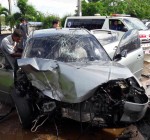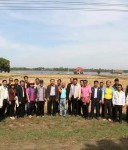

ผู้บ่าวไทบ้าน อีสานอินดี้ 2

คลิปข่าว3 มิติคืบหน้าการจัดการขยะต้นทางที่บึงกาฬ
คลิปการจัดการขยะชุมชนบ้านแก้วสมบูรณ์ธนาคารขยะเทศบาลตำบลพรเจริญ
ขอแนะนำเพลง ปากคาดปากซัน ร้องโดย เอก รุ่งสุวรรณ

ถ่ายทอดสดงานประเพณีแข่งเรือครั้งที่ 17 ณ แม่น้ำโขง ถนนข้าวเม่าริมโขง

มาเปิดคู่มือท่องเที่ยวของจังหวัดบึงกาฬกันเถอะ
คลิปน้ำตกถ้ำฝุ่น จ.บึงกาฬ รายการครอบครัวตะลุยฝัน
คลิปรายการHome Hashtag ภูสิงห์ น้ำตกถ้ำฝุ่น
(MASTER) หลวงพี่แจ๊ส 4G เต็มเรื่อง

คลิปน.ส.ยิ่งลักษณ์ ชินวัตร ขอบคุณแฟนเพจชาวบึงกาฬที่ต้อนรับอย่างอบอุ่น
วันนี้คุณรู้จักหินสามวาฬที่ภูสิงห์อีกสถานที่ท่องเที่ยวของ บึงกาฬแล้วหรือยัง(มีคลิป)
คลิปคนไทยหัวใจเดียวกัน ปี2 ตอน แนวทางการแก้ไขภัยแล้งให้กับประชาชน จ.บึงกาฬ

รายการทั่วถิ่นแดนไทย : เส้นทางแห่งธรรมชาติ ภูทอก จ.บึงกาฬ

ข่าวเที่ยงสัญจร จ บึงกาฬ แนะนำสถานที่ท่องเที่ยวจังหวัดบึงกาฬ

คลิปNbt ข่าวเช้า-เที่ยงสัญจร จ.บึงกาฬ ถนนข้าวเม่าริมโขง 17
หอการค้าบึงกาฬการท่องเที่ยวและกีฬาจังหวัดบึงกาฬ มอบดอกไม้แสดงความขอบคุณ นายเขียด ศิลปินผู้แต่งเพลงนิราศบึงกาฬ
ชิงช้าสวรรค์ 27 มิถุนายน 2558เรณูยังหนาว บึงกาฬ
บึงกาฬ เกิดอุบัติเหตุพ่วง18ล้อประสานงารถเก๋งเสียชีวิตเป็นชาย1ราย

ประมวลภาพงานถวายเพลิงสรีระหลวงปู่สุพิศ วัดถ้ำพระภูวัว จ.บึงกาฬ
ผู้ว่าฯ ขอนแก่นนำอาหาร-เครื่องดื่มต้อนรับชาวบึงกาฬ แวะพักก่อนเดินทางไปกราบพระบรมศพในหลวง

พสกนิกรจังหวัดบึงกาฬ 750 คนเดินทางเข้าถวายบังคมพระบรมศพ

จ.บึงกาฬ พร้อม 100 เปอร์เซ็นต์ จัดการแข่งขันกีฬาเยาวชน
จ.บึงกาฬ อุปสมบทหมู่ถวายเป็นพระราชกุศลแด่พระบาทสมเด็จพระปรมินทรมหาภูมิพลอดุลยเดช

ละสังขารแล้ว”หลวงปู่สุพิศ กันตจาโร” วัดถ้ำพระภูวัว ต.โสกก่าม อ.เซกา

บึงกาฬดวลสนั่นแก๊งค้ายา ! 2โจ๋นำยาบ้ามาส่ง พอรู้ว่าถูกล่อซื้อ ชักปืนดวลสู้ตำรวจ
ราคายางปรับดีขึ้น พร้อมทะยาน 60 บาท/กก. หลังผลผลิตน้อยกว่าความต้องการตลาดโลก

จ.บึงกาฬ เตรียมอำนวยความสะดวกให้กับประชาชนเดินทางไปสักการะพระบรมศพพระบาทสมเด็จพระปรมินทรมหาภูมิพลอดุลยเดช วันที่ 3 พ.ย.

ทหารลงนา ช่วยชาวนาที่บึงกาฬเกี่ยวข้าว ลดภาระยุคข้าวเปลือกราคาถูก
บึงกาฬ ตร.ภาค 4 บุกยึดทรัพย์ ‘กำนันแหนบทองคำ’

ไล่ล่าระทึกหนุ่มอุดรฯ ร่วมกำนันบึงกาฬรับจ้างขนยาบ้า 6.3 แสนเม็ด ค่ากว่า
มารู้จักแหนมเนืองคุณอ้อ ร้านรับแขกบึงกาฬ
มารู้จักพระเนื้อผงนำโชค หลวงปู่สมภาร
3จุดชมบั้งไฟพญานาคของจังหวัดบึงกาฬ 2559
ประเพณีฮีตสิบสอง คองสิบสี่ของชาวอิสาน
เปิดเวทีโค้งสุดท้าย”แม่น้ำสงคราม” สู่ “แรมซาร์ไซต์” อันดับ 15
มาเปิดคู่มือท่องเที่ยวของจังหวัดบึงกาฬกันเถอะ

ไปดู “ยางพาราต้นแรก” กับความภาคภูมิใจของชาวบ้าน อำเภอโซ่พิสัย จังหวัดบึงกาฬ

บึงกาฬ จากตำนานความเชื่อ!! สู่ชุดประจำชาติยอดเยี่ยม “มทนนาคี” จากเวที

“บ้านโนนสว่างเหนือ บึงกาฬ ปลอดเหล้า เปลี่ยนผู้ใหญ่บ้านขี้เมา เป็นคนใหม่”
ในหลวงกับพระอาจารย์จวน กุลเชฏโฐ วัดภูทอก จังหวัดบึงกาฬ

กว่าจะมีวันนี้!! ชาวปากคาด บึงกาฬ สู้ชีวิตลองผิดลองถูกปลูกบัวเก็บฝักขาย ฝักละบาท
ไทพวน พวนบึงกาฬ กับตำนานกับของความเป็นคนพวนในไทยสยาม
เจาะคดีกัญชาข้ามชาติมโหฬาร1.5ตัน-ริมโขง! ขึ้นฝั่งบึงกาฬส่งภาคใต้
เพลงบึงกาฬ
ประเพณีและวัฒนธรรม-ชาวบึงกาฬ
ข่าวกู้ภัยบึงกาฬ

บึงกาฬ เกิดอุบัติเหตุพ่วง18ล้อประสานงารถเก๋งเสียชีวิตเป็นชาย1ราย
7/11/2559เวลา1450น รับแจ้งจากแม่ ข่าย191 มีเหตุ ว40 หน้ […]
บึงกาฬผอ.โรงเรียนบ้านโคกอุดม ซิ่งปิกอัพฝ่าสายฝน ชนราวสะพานเสียชีวิต
เกิดเหตุปิกอัพ 4 ประตู เสียหลักพุ่งชนราวสะพาน บนถนนสาย […]

บึงโขงหลงด.ช. 3 ขวบวิ่งข้ามถนน ยายเรียกหันกลับถูกรถชนกระเด็น 10 ม.! ดับสลด
เด็กชายวัย 3 ขวบ วิ่งข้ามถนนบึงโขงหลง-โสกก่าม ช่วงทางโค […]

หนุ่มราชภัฏอุดรฯ ศูนย์บึงกาฬ ขี่ จยย.แหกโค้งชนเสาไฟข้างทางดับ
หนุ่มนักศึกษาปีที่ 1 ม.ราชภัฏอุดรธานี ศูนย์บึงกาฬ ขี่ จ […]

ด.ช. 6 ขวบ ตกปลาในบ่อสวนยางช่วงปิดเทอม ลื่นจมน้ำ ลุงโดดช่วยแต่ไม่ทัน
ด.ช.วัย 6 ขวบ มาอยู่กับลุงช่วงปิดเทอมที่สวนยาง จ.บึงกาฬ […]

บึงกาฬ ผงะ เจอศพเด็กผู้ชายเรือล่มลอยอืดริมโขง ญาติชาวลาวโร่รับศพ
ชาวบ้านออกหาปลาในแม่น้ำโขง จ.บึงกาฬ ผงะ เจอศพเด็กผู้ชาย […]

สาวใหญ่บึงกาฬจอดรถฉี่!! เพื่อนวนกลับมารับ-หายตัว ตามหาช็อกเจอริมถนน-ป้ายทะเบียนซุกใต้ศพ
เมื่อเวลา 00.10 น. วันที่ 7 ก.ย. พ.ต.ท.วรวิทย์
เกิดอุบัติเหตุรถบัสทหารเรือ บรรทุกฝีพายเจ้าแม่ประดู่ทองหักหลบสุนัขเสียหลักตกข้างทางที่บึงกาฬ
เมื่อเวลา 10.00 น.วันนี้(6 ก.ย.59) ร.ต.อ.ณรงค์ ศรีมาตร

ศรีวิไล ปืนแก๊ปดวลลูกซองถึงตาย! รุ่นพี่รุ่นน้องซัดกันกลางถนน อย่างกับในหนัง
ยิ่งกว่าในหนังคาวบอย หนุ่มบึงกาฬมีบ้านติดกับรุ่นพี่ขี้ห […]
ท่องเที่ยว

3จุดชมบั้งไฟพญานาคของจังหวัดบึงกาฬ 2559

วัดถ้ำศรีธน(วัดสว่างอารมณ์)วัดเก่าแก่จังหวัดบึงกาฬ
จ.บึงกาฬ ร่วมกับ ททท. จัดปั่น Tour

รู้หรือยัง5สถานที่ท่องเที่ยวที่ควรไปในจังหวัดบึงกาฬ

มาเปิดคู่มือท่องเที่ยวของจังหวัดบึงกาฬกันเถอะ
คลิปน้ำตกถ้ำฝุ่น จ.บึงกาฬ รายการครอบครัวตะลุยฝัน
คลิปรายการHome Hashtag ภูสิงห์ น้ำตกถ้ำฝุ่น
ไปเที่ยวน้ำตกบึงกาฬ สัมผัสความอลังการแห่งม่านน้ำ ดื่มด่ำธรรมชาติงดงาม

ททท.อุดรธานี จัด “คาราวานเลาะริมโขง เชื่อมโยงหนองคาย-บึงกาฬ” ยกระดับการท่องเที่ยวแบบพักผ่อนไปสู่การเรียนรู้

ประมวลภาพงานถวายเพลิงสรีระหลวงปู่สุพิศ วัดถ้ำพระภูวัว จ.บึงกาฬ

ละสังขารแล้ว”หลวงปู่สุพิศ กันตจาโร” วัดถ้ำพระภูวัว ต.โสกก่าม อ.เซกา

วัดถ้ำศรีธน(วัดสว่างอารมณ์)วัดเก่าแก่จังหวัดบึงกาฬ

ในหลวงกับพระอาจารย์จวน กุลเชฏโฐ วัดภูทอก จังหวัดบึงกาฬ

ขอเรียนเชิญญาติธรรมทุกท่านร่วมพิธีปักเขตวิสุงคามสีมาวัดป่าโสกก่าม อ.ศรีวิไล จ.บึงกาฬ ในวันที่ 26-27

วัดเวฬุวัน อ.ศรีวิไล”อีกหนึ่งสถานที่ท่องเที่ยวเชิงพุทธวันนี้คนบึงกาฬรู้จักแล้วหรือยัง”

ประมวลภาพประชาชนจากทุกภาคร่วมงานอัญเชิญสรีระสังขารหลวงปู่ทองพูล วัดภูกระแต

“มหัศจรรย์บัวริมบึง@หนองเลิง บึงกาฬ” แหล่งท่องเที่ยวใหม่ช่วงฤดูหนาว เข้าถึงง่าย ชมได้

ประมวลภาพกิจกรรมงานแข่งขันเรือยาวประเพณีตำบลวิศิษฐ์ ประจำปีงบประมาณ 2559

ภาพบรรยากาศทั่วไปงานแข่งเรือบึงกาฬก่อนวันแข่งจริง

ภาพบรรยากาศการแข่งรือท้องถิ่นเทศบาลตำบลดอนหญ้านาง อ.พรเจริญที่ผ่านมา

วันแม่ชาวบึงกาฬพาแม่และครอบครัวเที่ยวน้ำตกถ้ำพระกันอย่างคึกคัก

ททท.สนง.อุดรธานี จัดโครงการส่งเสริมการท่องเที่ยว ขึ้นภู ดูอีสานเขียว ดินแดนมหัศจรรย์

ประมวลภาพประชาชนจากทุกภาคร่วมงานอัญเชิญสรีระสังขารหลวงปู่ทองพูล วัดภูกระแต

ผู้ว่าราชการจังหวัดบึงกาฬเป็นประธานพิธีเปิดงาน กิจกรรม “ปั่นสองล้อ เที่ยวเขา ชมโขง

บึงกาฬเปิดสถานที่ท่องเที่ยว ภูสิงห์ มาภูสิงห์ภูเดียว เที่ยวทั้งวัน

ชาวอำเภอศรีวิไลจัดงานประเพณีสงกรานต์เล่นน้ำกันอย่างคึกคัก

เริ่มแล้ว!สงกรานต์จ.บึงกาฬ ถนนข้าวเม่า
ชาวบึงกาฬร่วมตักบาตรทำบุญวันสงกรานต์ เพื่อความเป็นสิริมงคลเนื่องในวันขึ้นปีใหม่ไทย

12 เม.ย.58 เทศบาลตำบลวิศิษฐ์เปิดงานวันผู้สูงอายุ












































